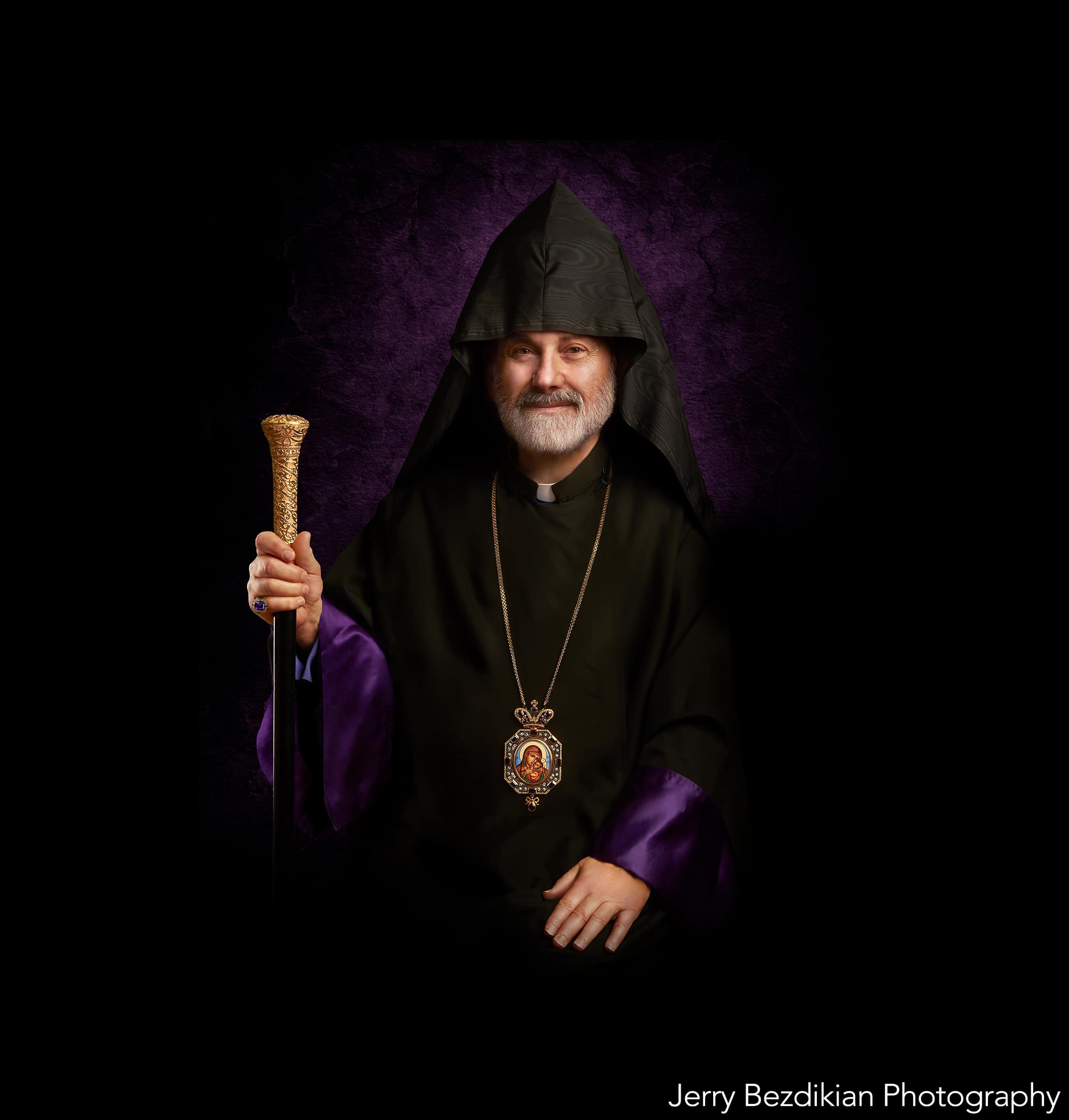The Prelate’s Sermon
September 2, 2021
Today on the fifth Sunday of the Assumption of God-bearer Holy Virgin Mary, the Gospel reading is from Saint Mark 7.31-37. The Evangelist narrates that Jesus, returning from Tyre and Sidon to the region of Decapolis, was welcomed by a crowd. A deaf and dumb person was brought to Him. Jesus takes him aside and in private puts His fingers into his ears, spits and touches his tongue, and looking up to heaven sighs and says, “Ephphatha,” which is to say, “Be opened.” Instantly, the person hears and speaks normally, and the people witnessing this unusual miracle exclaim “He has done everything good.”
Having in mind that miracles are incomprehensible for humans while very natural for God, I would like to share a few thoughts derived from this reading as “our daily bread.”
- The reference to two, predominantly gentile cities, Tyre and Sidon, modern Sour and Saida in Lebanon, is a precious detail that highlights the territory of our Lord’s earthly mission. In the preceding episode in the same chapter, when the Phoenician woman asked Jesus to heal her daughter, at first our Lord’s reply was upsetting, which I believe was to reveal the depth of her faith (Mk 7.24-30). On the other hand, from time to time, His visits to Tyre and Sidon are the best sign that He embraces not only the children of Israel but also the Gentiles, foretelling the message of the Good News to the four corners of the world.
- A brief study of the miracles performed by our Lord Jesus Christ may lead us to conclude that the healing power transmitted from the Physician par excellence to the patients has been through the spoken word as well as through the physical touch. The uniqueness in this healing case is the usage of saliva, which in the medical community is best known for its digestive and lubricative functions. There are so many things to learn within this microcosm. The human being is described as l’homme cette inconnu by Alexis Carrel, a Nobel Prize winner French surgeon and biologist. Jesus applies saliva on other occasions when He heals people (Mark 8:23; John 9:6), and yet the soldiers, blinded in their rage, spit upon Jesus as they mocked Him and tortured Him (Matthew 26:67 and 27:30; Mark 14:65 and 15:19). The Armenian Church-father Nerses Shnorhali describes the contradiction involving spittle in the 24th stanza of the hymn “Aysor anjar,” which we sing on Good Friday.
- By looking up to heaven, our Lord Jesus Christ constantly teaches us His permanent relationship and communication with God the Father. As such, He reminds us that in all circumstances, we too should cast our eyes up to our Heavenly Father, with Whom nothing is impossible. Moreover, in times of great achievements and successes, our communion with God is imperative; otherwise, the Tempter is at fast at the door and secretly can crawl into us by instigating pride through all its forms.
- The spontaneous exclamation of all those who witnessed this miracle, “He has done everything good,” echoes the original and authentic evaluation of the first Creation, “God saw the light that it was good” (Gen 1.3). Goodness only flows from the essence of the Creator who is Love. It is beyond our comprehension to know how and when Evil originated. Yet, trusting in God, who is omniscient and who is in full control of Creation, by acknowledging humbly and joyfully His goodness, it permeates in us the Divine image, offered to us unconditionally “until all of us we come to the unity of the faith and of the knowledge of the Son of God, to maturity, to the measure of the full stature of Christ,” as Saint Paul says (Eph 4.13).
Having our daily nourishment from this supernatural healing, let us all confess our deafness toward the loving and caring commandments of God, and be worthy to hear the blissful voice “Ephphatha,” and soon after with the Psalmist beseech, “O Lord, open my lips, and my mouth will declare your praise” (Ps 51.15) forever. Amen.

